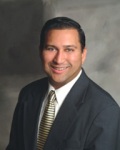Prognosticators, Prognostications, and Predictions. Isn’t that what lawyers and mediators do all the time? A lawyer predicts the likelihood of an outcome just like stock fund managers predict the likelihood of the stocks going up or down. In fact, stock fund managing and lawyering are often the same job: Analyzing the risk of an outcome in the future based on limited data that exists about unknown factors. Is there an art to prognostication or could anyone do better?
I predict the results would likely surprise you. Well then, maybe not!
In December 2010 John Stossel of Fox News Channel threw 30 darts into a page of stocks and compared their performance since January 1, 2010, with stock picks of the 10 largest managed funds. Results: Dartboard, a 31 percent increase; managed funds, a 9.5 percent increase. Wow! simply throwing darts was better than the ten best fund managers.
Several studies have investigated this phenomenon in the stock market and found that funds don’t predict the future well. The Future predictors would try to claim that they knew the future, but in fact were inaccurate in doing so.
Author Michael Shermer in his article in Scientific American had this to say about a study that evaluated the effectiveness of experts in the field predicting the future:
This self-deception among professional prognosticators was investigated by University of California, Berkeley, professor Philip E. Tetlock, as reported in his 2005 book Expert Political Judgment. After testing 284 experts in political science, economics, history and journalism in a staggering 82,361 predictions about the future, Tetlock concluded that they did little better than “a dart-throwing chimpanzee.”
There was one significant factor in greater prediction success, however, and that was cognitive style: “foxes” who know a little about many things do better than “hedgehogs” who know a lot about one area of expertise. Low scorers, Tetlock wrote, were “thinkers who ‘know one big thing,’ aggressively extend the explanatory reach of that one big thing into new domains, display bristly impatience with those who ‘do not get it,’ and express considerable confidence that they are already pretty proficient forecasters.” High scorers in the study were “thinkers who know many small things (tricks of their trade), are skeptical of grand schemes, see explanation and prediction not as deductive exercises but rather as exercises in flexible ‘ad hocery’ that require stitching together diverse sources of information, and are rather diffident about their own forecasting prowess.”
Being deeply knowledgeable on one subject narrows focus and increases confidence but also blurs the value of dissenting views and transforms data collection into belief confirmation. One way to avoid being wrong is to be skeptical whenever you catch yourself making predictions based on reducing complex phenomena into one overarching scheme.
This research is fascinating in the context of litigation. Often lawyers are so deeply involved in their case and focused on the details of their case that they might fail to see the dissenting views and information. In some sense, this is why mediators — who are less focused on the specifics details of the case and more focused on the big picture (much like the experts who were foxes) — are in a position to be able to provide a very different vantage point in predicting the future outcome of the case.
In addition, lawyers who often specialize in one area of practice who then become involved in a matter that may be slightly outside of their scope of practice have to be very careful that they don’t limit their view of the case from the narrow scope of specialization. They need to be sceptical of their own predictions in order to avoid the chances of litigation myopia.
To read more about this concept, read the SCIENTIFIC AMERICAN article









1 comment
Comments feed for this article
March 8, 2011 at 10:31 am
Mediation Matters: Zoltan The Lawyer: The Amazing Predictor of the Future - ADR Toolbox
[…] Mediation Matters: Zoltan The Lawyer: The Amazing Predictor of the Future stevemehta.wordpress.com… WSJ Law Blog: Jobs are Back! (But Just […]